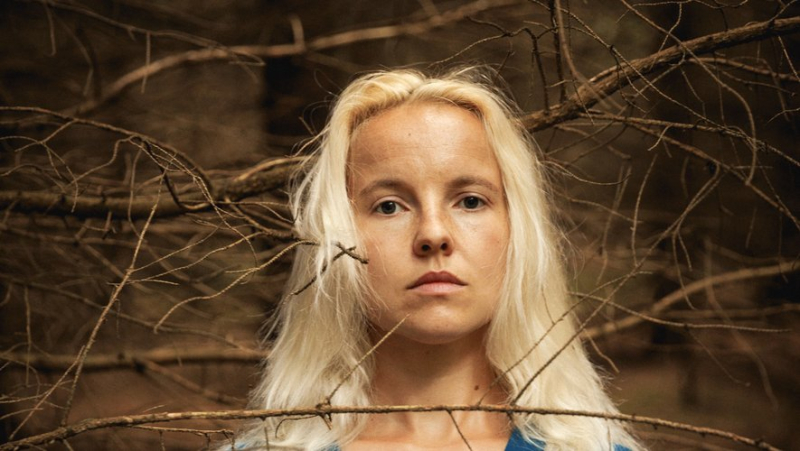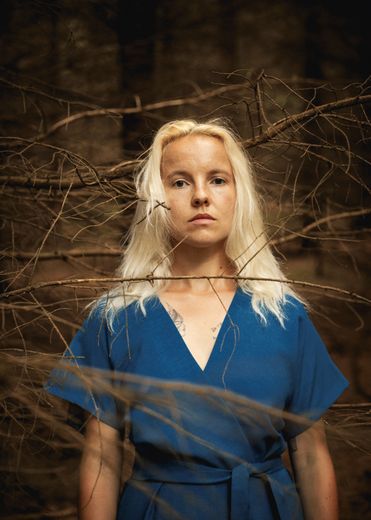“The darkness of the human soul… and the bodies of women wounded forever”, Cécile Coulon, finalist for the Habiter le Monde prize


“Les lieux sont plus vivants que les hommes, toujours”. Laura Stevens – Laura Stevens
Five novels are in the running for the 4th edition of the “Habiter le monde” prize, created by Midi Libre and Sauramps. It rewards an author who takes a critical look at the actions of his peers in terms of spatial and environmental planning. The finalists are: Sigolène Vinson for La clam (Le Tripode), Marion Fayolle for Du meme bois (Gallimard), Phoebe Hadjimarkos Clarke for Aliene (Le Sous-sol), Cécile Coulon for The language of hidden things (L rsquo;Iconoclaste) and Clara Arnaud for And you will pass like wild winds (Actes Sud).
An isolated place, a young healer, bruised bodies, buried secrets… This dark and feverish tale invites us into a disturbing and captivating world…
The writing of this book started with a walk in Picardy, at a place called Le Fonds du Puits, a place without a house where a torrent once passed. When I heard this name, I knew immediately that I was going to make a story about it. I also knew that it would be a very short text that would take place in one night, a night of transgression. From these two elements, my imagination took hold of the subject of men's violence against women, of family violence, of the place of children in this violence, but also and above all of our silence. Why does this continue, why are we silent?? This young healer who arrives in this village is going to shatter everything. He has something of the knight of medieval times whose role was to come and save, appease, restore balance… hellip; This book speaks of the darkness of the human soul, revenge, and the bodies of women wounded forever.
What is this language of hidden things that this young healer and his old mother master ?
It is that of what is not said, that which only exists for the unspeakable, it is this underground language which hides in conversations, in homes , in bodies and under bodies. In this Fund of the Well, the horror is the legacy of buried secrets. And there is this question: To what extent does being part of a community involve the effort to remain silent so that the balance continues? J rsquo;I wanted a story that oscillates between the tale and the fable, removing all the geographical clues, the names, the dates, so that the landscapes and the characters are no longer reduced to their actions.
You confront us with a nature that is at once sublime, harsh and brutal, in an almost apocalyptic atmosphere…
I wanted a landscape that would be able to shelter such secrets and such violence. My places are never imagined or imaginary, my books begin and end with them. No doubt because I was born in a place surrounded by volcanoes and lakes, and I never stopped wanting to find it and tell about it. I am touched by the very uninhabited landscapes. I never go towards a gentle or soothing nature, in fact it can be so? Nature is always charged with the secrets of men, with the history of those who are been there before. It's not the storms or the animals that worry me, it's what we humans do in this nature.
Your visceral attachment to the earth seems, in this text, to be accompanied by a state of anger…hellip;
Yes, because we are gradually losing the ability to inhabit places, to inhabit them completely, that is to say, to understand to what extent they influence us. We are torn away, by a daily life which sorely lacks philosophy and perspective, from places which are nevertheless important to us. The anger is there. Places are more alive than people, always… They have much more to tell us, and in a calmer, gentler, more underground way. It’s a bit like my writing pact: to talk about these places which will survive all those who pass through them whatever their attempts to shape them.
The power of poetry
In The Language of Hidden Things, C&cile Coulon attempted, for the first time, to mix poetryé and novel. His manner è she can inhabit the world. "I’ve been told a lot, she confides, that poetry & It was the space of great emotion, of passion, of the unreasonable. However, the more I write, the more I read and the more I say, the more I am convinced of the opposite. Poetry is the last space of reason, of care for others and oneself, of discretion. She tells us that we are just passing through. Éto write or read poetry is to try to make one's place in the world and to harmonize its cruelty".
“The Language of Hidden Things” (The Iconoclast), 135 pages, 17.90 euros). I subscribe to read more




